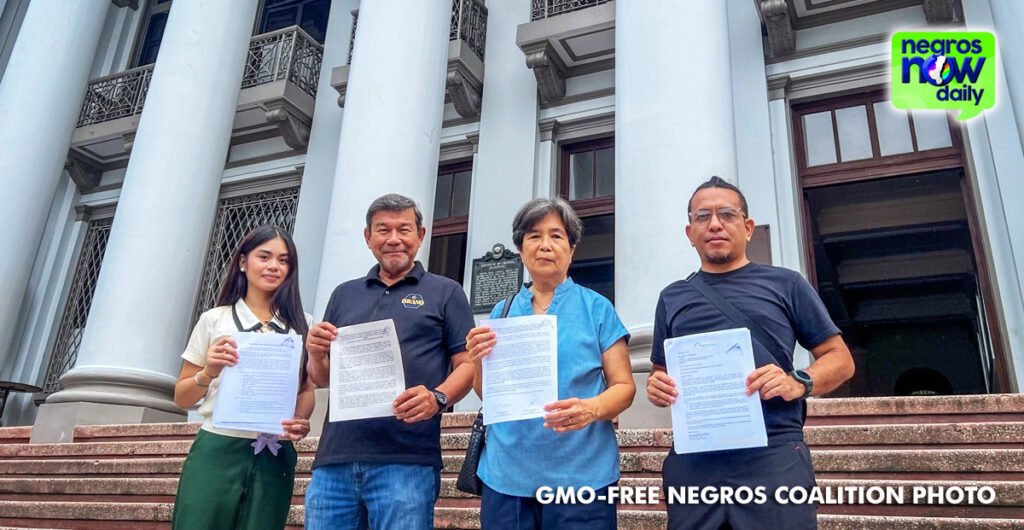A total of 82 organizations and companies belonging to a coalition fighting against the entry of living genetically-modified organisms (GMOs) into Negros Occidental, delivered four separate position papers to the Provincial Capitol Sept. 30, the GMO-Free Negros Coalition said.
The documents challenged a proposed ordinance that would regulate the use of GMOs in the province’s agriculture.
The GMO-Free Negros Coalition, composed of farmers, civil society organizations, church groups, consumers, and advocates opposing the entry of living GMOs into Negros Occidental, was first to submit its position paper, signed by leaders of 39 companies and organizations, it said in a press release.

Three groups from within the coalition followed suit, including the Hotel and Restaurant Association of Negros Occidental (HRANO), signed by its president, Roberto Magalona, and 39 other members; First Farmers Holding Corporation and First Farmers Planters Association, which made a joint statement signed by their respective presidents, Rafael Lizares Jr. and Nicolas Ledesma Jr.; and the Negrosanon Youth, led by the Rise for Roots Movement, composed and signed by 50 student-leaders and student-journalists, it added.
The Coalition’s position paper focused on “Preserving Negros Occidental’s Legacy as the ‘Organic Capital of the Philippines’.” Bishop Gerardo Alminaza of the Diocese of San Carlos signed the cover letter of this position paper, addressed to Board Member Andrew Montelibano, who chairs the Sangguniang Panlalawigan committees on Agriculture and the Environment.
Copies of the position paper were also provided to Vice Governor Jose Benito Alonso and all other members of the SP.
“Negros Occidental holds a unique and pioneering place in the Philippines as the country’s Organic Capital. These safeguards, embodied in the 2007 Safeguard Against Living GMOs Ordinance and the 2011 Organic Agriculture Ordinance, are critical not only for protecting the environment and farmers’ livelihoods, but also for sustaining the province’s global reputation in the organic movement,” the coalition said.
Their 22-page position paper argued against GM crops, citing scientific findings on the risks they pose to health, the environment, and farmers’ livelihoods.
The group urged the provincial government to uphold and strengthen the 2007 and 2011 anti-GMO ordinances without dilution or repeal; conduct broad-based, transparent, and more inclusive, less-emotional public hearings on the proposed ordinance; provide relevant data to scientifically and transparently validate the conclusion that introducing GMOs will address food security in Negros Occidental;
Make a final stand on its commitment to host the Organic World Congress in 2027; and redirect resources to bolster farmers’ capacities, agricultural infrastructure, and sustainable farming systems.
“By embracing this path, Negros Occidental will continue to be a model of sustainable agriculture, food security, and organic excellence—not a testing ground for GMO interests,” the coalition stressed. ||




